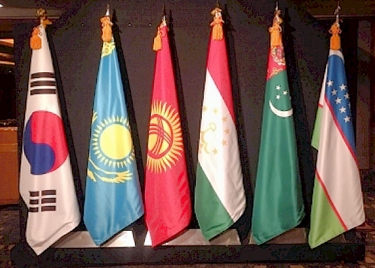On 12 December, Tashkent hosted the third cultural and strategic forum, “The Korean Peninsula and the North: a joint journey to Uzbekistan,” welcoming a prominent delegation from South Korea and ambassadors from Azerbaijan, Georgia, Kazakhstan, Kyrgyzstan, Tajikistan, Turkmenistan, and Turkiye.
Launched by Seoul in 2021, the forum aims to foster understanding and collaboration between South Korea and countries bordering the Korean Peninsula. This marks the inaugural forum outside of South Korea, highlighting Uzbekistan’s growing significance in regional dialogue.
Akramjon Nematov, First Deputy Director of the Institute for Strategic and Interregional Studies under the President of Uzbekistan (ISMI), opened the forum. He emphasized that South Korea pioneered the “C5+1” dialogue format with Central Asian countries in 2007, leading to 16 forums and establishing robust cooperation mechanisms.
Nematov further stressed that Central Asia’s consolidated approach under the “CA+” format presents unprecedented opportunities for cooperation. “Our countries are committed to closer ties and building a new economic trajectory within the region, capitalizing on our respective competitive advantages and economic complementarity,” he stated.
He outlined the favorable conditions for regional collaboration, prioritizing the creation of a large, interconnected market. He highlighted the ongoing development of transport and logistics infrastructure, including the construction of logistics centers, the promotion of the Middle Corridor (Asia-Europe) and the development of transport links with South Asia.
Industrial cooperation is also flourishing, evidenced by the establishment of trade and industrial free economic zones in border areas and joint investment funds to support projects. Additionally, close collaboration exists in the area of energy security, with joint efforts by Uzbekistan, Tajikistan, Kazakhstan, and Kyrgyzstan to build new and modernize existing hydroelectric power plants.
Nematov underscored the shared vision on climate change. “Recognizing the severe impact of global warming in our region, we are actively working on water conservation, implementing water-saving technologies, and promoting drought-resistant crops,” he explained. This commitment was further solidified by the adoption of the “Green Agenda for Central Asia” at the 2022 Cholpon-Ata summit, emphasizing the region’s transition to a “green” development model.
Nematov concluded that Central Asia’s dynamic transformation presents exciting, untapped opportunities for South Korea and other external partners. He expressed confidence in the potential for fruitful cooperation in all aforementioned areas and urged Seoul to provide support in unlocking the region’s full potential.
From 10 to 15 December, a representative delegation from the Republic of Korea, consisting of political, diplomatic and expert-analytical circles, is on a visit to Uzbekistan.
As part of the Korean delegation’s stay, an expert forum “Strategic Dialogue Central Asia – the Republic of Korea: Prospects for mutually beneficial Cooperation” was held in Tashkent on 11 December, organized by Institute for Strategic and Interregional Studies in partnership with the Korean Center for International Regional Studies at the Hanguk University of Foreign Languages. ///UzDaily.uz, 13 December 2023
